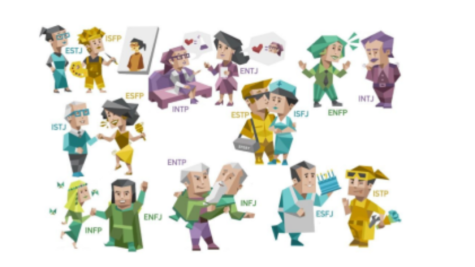What Is MBTI, And How Does It Affect You?
February 14, 2023
You are special. No, really! The way you think, communicate, and comprehend the world, how you manage your career, relationships, and even emotions. This is heavily influenced by your personality, or in this case, your Myers- Briggs personality type. A result revealed by taking the Myers-Briggs Type Indicator (MBTI). MBTI is an assessment that measures and assesses your personality, then informs you of the outcomes accordingly. Over 698 million people have taken the assessment. That’s a lot of people! So, why do people know their MBTI? What are the benefits? Are there any benefits? The MBTI assessment is most commonly used to form self-awareness. It determines your strengths and weaknesses, helping you understand factors about yourself. It’s also responsible for your psychological preferences. That could be your work style, learning style, attitude, patience, response to failure/success, how you perceive the world, and so much more! Additionally, it provides the most suitable career options and relationships depending on your specific type. In fact, there are in total 16 individual MBTI personality types.

Picture of all of the avatars and labels for each MBTI personality type, created by the “16 personalities” company.
Every MBTI personality type and what it stands for:
● INTJ or ENTJ stands for Introversion/Extraversion, “iNtuition” (intuition), Thinking, and Judgment.
● INTP or ENTP stands for Introversion/Extraversion, “iNtuition” (intuition), Thinking, and Perception.
● INFJ or ENFJ stands for Introversion/Extraversion, “iNtuition” (intuition), Feeling, and Judgment.
● INFP or ENFP stands for Introversion/Extraversion, “iNtuition” (intuition), Feeling, and Perception.
● ISTJ or ESTJ stands for Introversion/Extraversion, Sensing, Thinking, and Judgment.
● ISFJ or ESFJ stands for Introversion/Extraversion, Sensing, Feeling, and Judgment.
● ISTP or ESTP stands for Introversion/Extraversion, Sensing, Thinking, and Perception.
● ISFP or ESFP stands for Introversion/Extraversion, Sensing, feeling, and Perception.
After taking the assessment, you may question the “A” or “T” at the end of your result. For instance, it could look like “INFP-A” or “INFP-T”. Not to worry, everyone has one! They stand for either Assertive or Turbulent. Being that they mean very different things, changes a lot about how MBTI personality types stereotypically behave.
Assertive people are more self-assured yet overconfident. They likely don’t regret their past choices and leave what’s done, done.
Turbulent people push themselves harder, fueled by a sensitivity to negativity. They tend to be success-driven due to their self-critique.
If you want to know more about the other letters in your MBTI personality type, go ahead and take the assessment! It’s free, so learn something new, and try it out for yourself.
MBTI Assessment Link: https://www.16personalities.com/

Picture of MBTI personality type’s most compatible relationships
Sources:
https://www.16personalities.com/
https://www.verywellmind.com/the-myers-briggs-type-indicator-2795583
https://www.imperial.ac.uk/media/imperial-college/administration-and-support-services/staff-
development/public/impex/MBTI.pdf
https://www.themyersbriggs.com/en-US/Products-and-Services/Myers-
Briggs#:~:text=With%20more%20than%2070%20years,understanding%20and%20valuing%20i
ndividual%20differences
https://thoughtcatalog.com/heidi-priebe/2017/02/8-ways-of-grouping-myers-briggs-types-that-
would-make-more-sense-than-keirseys-temperament-groups/
https://www.mbtionline.com/en-US/Articles/2017/April/6-Reasons-Why-Knowing-Your-
Personality-Type-Can-Change-Your-
Life#:~:text=Knowing%20more%20about%20your%20unique,time%2C%20in%20your%20relati
onships%20





